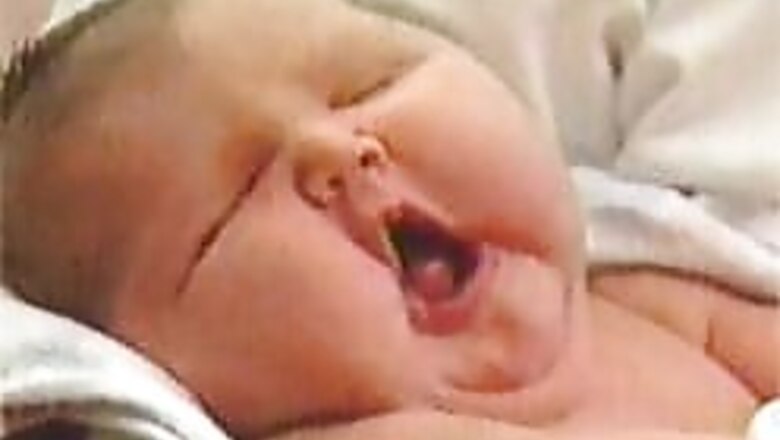
views
Washington: In a new study, researchers at Yale University found that mothers who delivered vaginally compared to caesarean section delivery (CSD) were significantly more responsive to the cry of their own baby.
The findings of the study suggest that vaginal delivery (VD) mothers are more sensitive to own baby-cry in the regions of the brain that are believed to regulate emotions, motivation and habitual behaviours.
CSD is a surgical procedure, in which delivery occurs via incisions in the abdominal and uterine wall. It is considered necessary under some conditions to protect the health or survival of infant or mother, but it is controversially associated with postpartum depression.
The critical capacity of adults to develop the thoughts and behaviours needed for parents to care successfully for their newborn infants is supported by specific brain circuits and a range of hormones.
The experience of childbirth by VD compared with CSD uniquely involves the pulsatile release of oxytocin from the posterior pituitary, uterine contractions and vagino-cervical stimulation.
Oxytocin is a key mediator of maternal behaviour in animals. "We wondered which brain areas would be less active in parents who delivered by caesarean section, given that this mode of delivery has been associated with decreased maternal behaviours in animal models, and a trend for increased postpartum depression in humans," says said lead author, Child Study Centre, Yale University. Dr. James Swain.
"Our results support the theory that variations in delivery conditions such as with caesarean section, which alters the neurohormonal experiences of childbirth, might decrease the responsiveness of the human maternal brain in the early postpartum," he added.
The researchers also examined the brain areas affected by delivery conditions and found relationships between brain activity and measures of mood suggesting that some of the same brain regions may help regulate postpartum mood.
"As more women opt to wait until they are older to have children, and by association be more likely to have a caesarean section delivery, these results are important because they could provide better understanding of the basic neurophysiology and psychology of parent-infant attachment," said Swain.
"This work could lead to early detection of families at risk for postpartum depression and attachment problems and form a model for testing interventions," he added. The study is published in The Journal of Child Psychology and Psychiatry.




















Comments
0 comment